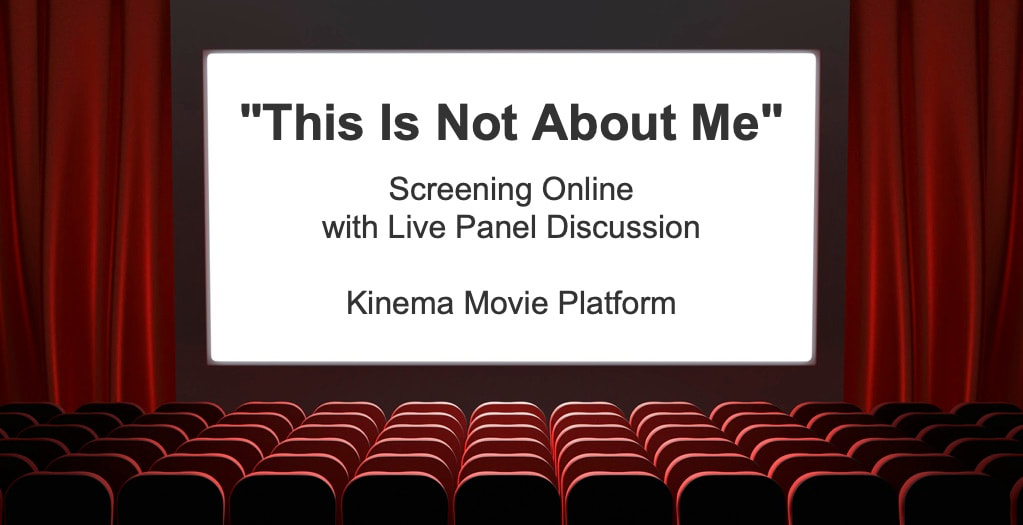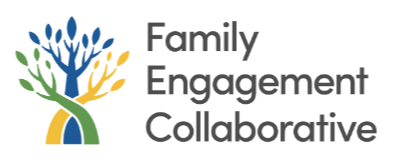|
Live Broadcast of
"This Is Not About Me" Followed by Panel Discussion featuring Jordyn Zimmerman May 24, 2023
4:00 to 6:00 p.m. PT |
Join us as we view the film This is Not About Me and share our learnings.
After the film we will have a 60 minute panel discussion
with moderator Sarah Butcher from Roots of Inclusion
About the Movie
What is it like to be autistic and non-speaking in a world that has already made up its mind about you? This Is Not About Me tells the story of Jordyn Zimmerman. Jordyn dreamt of becoming a teacher. She started out eager to learn at school, but she was soon separated from the other children. Unable to communicate, teachers thought she was also unable to understand or learn. Year after year, her behavior worsened. She was restrained and placed in seclusion. Jordyn found herself caught in a system that turned her life into a living nightmare. Finally, at the age of 18, with the help of educators who see her differently, she manages to turn her fate and flourish.
Screening Information and Resources
We will be hosting a "Live Broadcast" of the film on the Kinema platform
We have provided the link to register above.
You will need a Kinema account to attend the screening.
We have provided the link to register above.
You will need a Kinema account to attend the screening.
More Details about the Event Platform:
- The panel discussion is part of the live event on the Kinema platform, you only need to register once for the viewing and panel discussion.
- This is a private screening, you need to use the link above to register. Other screenings listed on the Kinema site are different events
Questions about registration or the Kinema platform? Contact us at [email protected]
About the Panelists
Jordyn Zimmerman, MEd (she/her) - serves as the Director of Professional Development at The Nora Project, which supports educators in their efforts to teach all students about disability as a valued and expected part of human diversity. She is also the Chair of CommunicationFIRST’s Board of Directors. She earned her master’s degree in Curriculum and Instruction at Boston College in 2021. Before graduate school, Ms. Zimmerman interned at the National Disability Rights Network and completed her bachelor’s degree in Education Policy at Ohio University. As a nonspeaking autistic student who was denied access to effective augmentative communication until she was 18, Ms. Zimmerman has personal experience challenging the educational status quo, experience that is featured in the 2021 documentary This Is Not About Me. An avid typist and advocate for all students, Ms. Zimmerman is passionate about ensuring every student is able to access effective communication and exercise their right to a truly inclusive education.
Grant Blasko (he/him) - is a young adult nonspeaking autistic student who communicates using augmentative and alternative communication (AAC). He lives in Mercer Island, Washington, where he currently attends Bellevue College. He is also a University of Washington DO-IT Scholar, an active member of TASH’s National Communication Access Workgroup, and an Advisory Council member of the civil rights organization CommunicationFIRST. Since the age of 11, Grant has been advocating for himself and other non-speaking autistics at schools, conferences, and universities throughout the United States. He is passionate about curriculum accessibility, Universal Design for Learning (UDL), and inclusive practices.
Cynthia Blasko (she/her) - is the proud parent of three children with a medical-surgical background as a physician assistant and is a Director at Roots of Inclusion. Since 2012, she has worked with public school districts to support children who type to communicate. First in Montgomery County, Maryland, and now in Bellevue, Washington, she has advocated, trained, coached, and collaborated with elementary, middle, and high school staff to support inclusion for students with complex communication needs.
Jennifer Karls (she/her) - is the parent of two young adult children and a co-founder and Director at Roots of Inclusion. Jennifer has worked to understand how systems that intersect in the lives of her children (education, employment, and healthcare to name a few) perpetuate inequities and how the lack of communication access in those systems continues to isolate and cause harm to her child who is minimally speaking autistic.
Grant Blasko (he/him) - is a young adult nonspeaking autistic student who communicates using augmentative and alternative communication (AAC). He lives in Mercer Island, Washington, where he currently attends Bellevue College. He is also a University of Washington DO-IT Scholar, an active member of TASH’s National Communication Access Workgroup, and an Advisory Council member of the civil rights organization CommunicationFIRST. Since the age of 11, Grant has been advocating for himself and other non-speaking autistics at schools, conferences, and universities throughout the United States. He is passionate about curriculum accessibility, Universal Design for Learning (UDL), and inclusive practices.
Cynthia Blasko (she/her) - is the proud parent of three children with a medical-surgical background as a physician assistant and is a Director at Roots of Inclusion. Since 2012, she has worked with public school districts to support children who type to communicate. First in Montgomery County, Maryland, and now in Bellevue, Washington, she has advocated, trained, coached, and collaborated with elementary, middle, and high school staff to support inclusion for students with complex communication needs.
Jennifer Karls (she/her) - is the parent of two young adult children and a co-founder and Director at Roots of Inclusion. Jennifer has worked to understand how systems that intersect in the lives of her children (education, employment, and healthcare to name a few) perpetuate inequities and how the lack of communication access in those systems continues to isolate and cause harm to her child who is minimally speaking autistic.
If you require accommodations, please contact us at [email protected]
We request that you allow a minimum of 72 hours notice to allow us time to arrange accommodations
We request that you allow a minimum of 72 hours notice to allow us time to arrange accommodations




